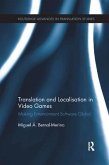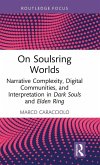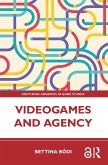This volume provides an in-depth examination of the video game Death Stranding, focusing on the game's exploration of ruin, nostalgia, and atonement as its primary symbolic, narrative, and mechanical language.
Offering the first close examination of Death Stranding's narrative, the book also incorporates a strong foundation in game studies, most especially related to the concepts of immersion and embodiment. The focus of the book lies in considering how Death Stranding expands on the themes of ruin, longing, and the need for connection, and whether a reconciliation-on a community level, national level, or even global level-might be possible.
This book will appeal to scholars in a variety of disciplines in the Humanities and the Social Sciences, from video game studies and media studies to English, history, philosophy, and popular culture.
Offering the first close examination of Death Stranding's narrative, the book also incorporates a strong foundation in game studies, most especially related to the concepts of immersion and embodiment. The focus of the book lies in considering how Death Stranding expands on the themes of ruin, longing, and the need for connection, and whether a reconciliation-on a community level, national level, or even global level-might be possible.
This book will appeal to scholars in a variety of disciplines in the Humanities and the Social Sciences, from video game studies and media studies to English, history, philosophy, and popular culture.








